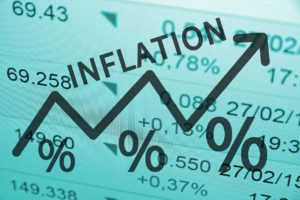January 17, 2019/InvestmentOne Report
Yesterday, the National Bureau of Statistics (NBS) released the Inflation report for the month of December 2018, which showed headline inflation climb to 11.44% year-on-year (y/y), from 11.28% y/y in November 2018. This was slightly in line with our best case scenario estimate of 11.49%. The variance in our best case estimate and actual inflation figure was due to a slower than expected increase on month on month basis (0.74% actual vs 0.77% estimate).
· However, the headline inflation slowed down month-on-month (m/m) to 0.74% in December 2018 from 0.80% in November 2018. We opine that the low base effect resulting from lower m/m readings of the corresponding month in 2017 (0.59% m/m in December 2017; the lowest m/m reading in 38 months) vs 0.74% in December 2018 may have resulted to the 16bps surge in headline inflation y/y.
· Similarly, the rise in y/y change in the Food-Sub index (13.56% in December 2018 vs 13.30% in November 2018) due to the low base effect of December 2017 may have further put pressure on the upward movement of y/y headline inflation. However, the Food-Sub index declined marginally by 9bps m/m to 0.81% in December 2018..
· The Core-Sub Index was somewhat flat, slowing by only a base point to 9.77% y/y while it moderated by 18bps to 0.50% m/m. We highlight that the Core Sub Index has remained relatively flat y/y for the past five months.
· We opine that stability in the PMS price during the festive period, as well as continued stability in the Foreign Exchange (FX) market, might have supported the slow growth in Core Sub Index. This could have led to slower increase in production cost and limited the potential for significant price increase.
· Going forward, we believe inflationary pressures will be driven by election spending, conflicts in the Northern region disrupting food supply and the implementation of the N9.12trillion 2018 budget. In the same vein, possible rise in minimum wage may cause a spike in general price levels in the near term.
· On the other hand, we expect government to remain committed to sustaining adequate supply while maintaining the official PMS price at N145 per litre, as this may have some effect on the current administration’s reelection bid in 2019.
· As a result of these inflationary pressures, we believe the Monetary Policy Committee (MPC) may maintain the MPR at 14% during its meeting next week. Nonetheless, we could see the MPC continue its tightening stance in the near term by maintaining the frequency of its Open Market Operations (OMO) auctions. This could help to reduce inflation pressures, albeit negative for economic growth in the near term.














